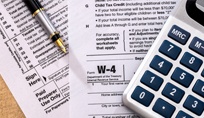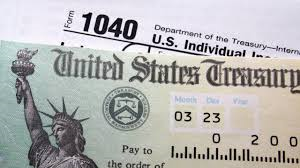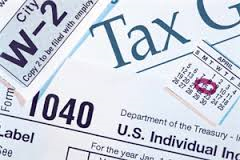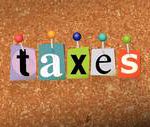Leading Tax Scams on IRS Dirty Dozen
Be aware of these phishing and phone scams and do not fall for them!
Phisching Scheme Emails and Websites
Phishing schemes lead the IRS “Dirty Dozen” List of Tax Scams for 2017. The Internal Revenue Service warned taxpayers to watch out for fake emails or websites looking to steal personal information. See IR-2017-15.
It May Not Be Who You Think It Is
In these email schemes, criminals pose as a person or organization the taxpayer trusts or recognizes. They may hack an email account and send mass emails under another person’s name. They may pose as a bank, credit card company, tax software provider or government agency. Criminals go to great lengths to create websites that appear legitimate but contain phony log-in pages. These criminals hope victims will take the bait and provide money, passwords, Social Security numbers and other information that can lead to identity theft.
The IRS saw a big spike in phishing and malware incidents during the 2016 tax season. New and evolving phishing schemes have already been seen this month as scam artists work to confuse taxpayers during filing season. The IRS has already seen email schemes in recent weeks targeting tax professionals, payroll professionals, human resources personnel, schools as well as average taxpayers.
W-2 Phishing Scam Explained
Form W-2 scam targeting Payroll and Human Resource departments is one of the known phishing scams
This email scam uses a corporate officer’s name to request employee Forms W-2 from company payroll or human resources departments.
The IRS already has received new notifications that the email scam is making its way across the nation for a second time. The IRS urges company payroll officials to double check any executive-level or unusual requests for lists of Forms W-2 or Social Security number.
The W-2 scam first appeared in 2016. Cybercriminals tricked payroll and human resource officials into disclosing employee names, SSNs and income information. The thieves then attempted to file fraudulent tax returns for tax refunds.
For Example
This phishing variation is known as a “spoofing” e-mail. It will contain, for example, the actual name of the company chief executive officer. In this variation, the “CEO” sends an email to a company payroll office or human resource employee and requests a list of employees and information including SSNs.
The following are some of the details that may be contained in the emails:
Kindly send me the individual 2016 W-2 (PDF) and earnings summary of all W-2 of our company staff for a quick review.
Can you send me the updated list of employees with full details (Name, Social Security Number, Date of Birth, Home Address, Salary).
I want you to send me the list of W-2 copy of employees wage and tax statement for 2016, I need them in PDF file type, you can send it as an attachment. Kindly prepare the lists and email them to me asap.
Phone Scammers Impersonate IRS Agents
Phone scams are a serious threat and remain on the IRS “Dirty Dozen” List of Tax Scams for 2017. Aggressive and threatening phone calls by criminals impersonating IRS agents remain a major threat to taxpayers. See IR-2017-19.
An aggressive and sophisticated phone scam targeting taxpayers, including recent immigrants, has been making the rounds throughout the country. Callers claim to be employees of the IRS, but are not. These con artists can sound convincing when they call. They use fake names and bogus IRS identification badge numbers. They may know a lot about their targets, and they usually alter the caller ID to make it look like the IRS is calling.
“You Owe Money” Pay Now!
Victims are told they owe money to the IRS and it must be paid promptly through a pre-loaded debit card or wire transfer. If the victim refuses to cooperate, they are then threatened with arrest, deportation or suspension of a business or driver’s license. In many cases, the caller becomes hostile and insulting.
“You Have a Refund Due” Give Me Your Information!
Or, victims may be told they have a refund due to try to trick them into sharing private information. If the phone isn’t answered, the scammers often leave an “urgent” callback request.
The IRS will never:
- Call to demand immediate payment using a specific payment method such as a prepaid debit card, gift card or wire transfer. Generally, the IRS will first mail you a bill if you owe any taxes.
Threaten to immediately bring in local police or other law-enforcement groups to have you arrested for not paying. - Demand that you pay taxes without giving you the opportunity to question or appeal the amount they say you owe.
- Ask for credit or debit card numbers over the phone






 Starting in 2017, residents of Massachusetts can deduct contributions to a Massachusetts 529 college savings plan or a prepaid tuition program, up to $1,000 per individual or $2,000 per married couple filing jointly. This tax benefit will be available to taxpayers through the 2021 tax year, when the deduction is scheduled to expire.
Starting in 2017, residents of Massachusetts can deduct contributions to a Massachusetts 529 college savings plan or a prepaid tuition program, up to $1,000 per individual or $2,000 per married couple filing jointly. This tax benefit will be available to taxpayers through the 2021 tax year, when the deduction is scheduled to expire. The Surface Transportation Act of 2015 (“the Highway Act”) revised filing deadlines for partnership tax returns, C corporation tax returns, and foreign information reporting (FinCen 114/FBAR) effective for 2016 tax returns.
The Surface Transportation Act of 2015 (“the Highway Act”) revised filing deadlines for partnership tax returns, C corporation tax returns, and foreign information reporting (FinCen 114/FBAR) effective for 2016 tax returns. Generally, April 15 of each year is the due date for filing your federal individual income tax return.
Generally, April 15 of each year is the due date for filing your federal individual income tax return.